Ditapis dengan

Towards a Better Understanding of Experience during Trips: Impact on Satisfac…
AbstractPurpose – The purpose of this paper is to reinforce the experiential paradigm from which academics and practitioners currently explain consumer decision making in touristic activities. More specifically, this research brings new insights for understanding consumption experience. The aim is to establish relationships between Experience, Satisfaction, Destination Attachment, as well as …
- Edisi
- International Journal of Tourism Cities
- ISBN/ISSN
- -
- Deskripsi Fisik
- 40 halaman
- Judul Seri
- Towards a Better Understanding of Experience during Trips: Impact on Satisfaction, Destination Attachment and Word-of-Mouth
- No. Panggil
- ATC PO HAG a

Time to rethink Norwegian maritime collaboration exercises
Purpose This case study maps the perceived collaboration between public, private, and volunteer organizations during maritime crisis work, with a substantive focus on communication, information flow, and distribution of activities. The exercise studied was held in the far north in Norway. It was estimated to be Europe’s most extensive exercise in 2016. Design The data were collected through …
- Edisi
- International Journal of Emergency Services
- ISBN/ISSN
- -
- Deskripsi Fisik
- 30 halaman
- Judul Seri
- Time to rethink Norwegian maritime collaboration exercises
- No. Panggil
- ATC PO ELS a

Service quality in maritime transport: conceptual model and empirical evidence
Abstract Purpose – The purpose of this paper is to extend knowledge on service quality and how it is defined and thus, managed, in the context of maritime transport by proposing and testing a new conceptual model of service quality. Design/methodology/approach – The study used a sample of 197 shipping companies, port operators and freight forwarders/logistics service providers, employing t…
- Edisi
- Service quality in maritime transport
- ISBN/ISSN
- -
- Deskripsi Fisik
- 26 halaman
- Judul Seri
- Service quality in maritime transport: conceptual model and empirical evidence
- No. Panggil
- ATC PO VIN a

Senses of “shipscapes”: an artful navigation of ship architecture and aes…
Abstract Purpose – In the context of organizational aesthetics, “built environments” remain under-explored. The purpose of this paper is to enter the maritime world of ship architectures to navigate sensory-aesthetic knowledge of a sailor’s place-based memories. Design/methodology/approach – Challenges have been issued to explore the potential for artistic-sensual methodologies to b…
- Edisi
- Journal of Organizational Change Management
- ISBN/ISSN
- -
- Deskripsi Fisik
- 19 halaman
- Judul Seri
- Senses of “shipscapes”: an artful navigation of ship architecture and aesthetics
- No. Panggil
- ATC PO JOH a

Revisiting the resource-based view on logistics performance in the shipping i…
Abstract Purpose –The purpose of this study is to evaluate empirically the impact of intrafirm resources, interfirm relationships, and logistics service capabilities on logistics performance in the container logistics context. Design/methodology/approach –Factor analysis was employed to identify the key intrafirm resources (i.e. tangible assets and intangible assets), interfirm relation…
- Edisi
- International Journal of Physical Distribution & L
- ISBN/ISSN
- -
- Deskripsi Fisik
- 29 halaman
- Judul Seri
- Revisiting the resource-based view on logistics performance in the shipping industry
- No. Panggil
- ATC PO CHU a

Maritime Safety Culture in Europe
Therefore, it was time for the European Union to act and to develop a new concept of safety culture. A parallel can be drawn between the attitude of the International Maritime Organisation (IMO) and the attitude of the European Union. The IMO is well known for promoting and improving safety and also in being reactive to maritime disasters. Now we discover a new philosophy of “anticipating a…
- Edisi
- Managerial Law
- ISBN/ISSN
- -
- Deskripsi Fisik
- 61 halaman
- Judul Seri
- Maritime Safety Culture in Europe
- No. Panggil
- ATC PO LUC a

Maritime piracy and the cost of world trade*
Abstract Purpose – The aim of this study is to determine the nature and extent of the threat of global maritime piracy. The cost of global piracy has been estimated at USD15-25 billion, reaching an all-time high in 2011, remaining an ongoing threat to world trade and contributing to high commodity costs.
- Edisi
- Maritime piracy
- ISBN/ISSN
- -
- Deskripsi Fisik
- 14 Halaman
- Judul Seri
- Maritime piracy and the cost of world trade*
- No. Panggil
- ATC PO STE a

Knowledge management capability and supply chain management practices in the …
Abstract Purpose – The main goal of this research is to examine the effect of knowledge management capabilities on supply chain management practices and organizational performance in firms, in addition to examining the effect of supply chain management on organizational performance. Design/methodology/approach – To demonstrate the effect of knowledge management capabilities on supply chain…
- Edisi
- Business Process Management Journal
- ISBN/ISSN
- -
- Deskripsi Fisik
- 24 halaman
- Judul Seri
- Knowledge management capability and supply chain management practices in the Saudi food industry
- No. Panggil
- ATC PO AHM a

Impact of Maritime Labour Convention on design of new ships
Abstract Purpose – The Maritime Labour Convention (MLC) embodies standards of existing international maritime labour conventions and recommendations, as well as the fundamental principles to be found in other international labour conventions. The aim of the convention is to address the employment standards of seafarers in the areas of fair wages, contractual terms, working and living condit…
- Edisi
- Maritime Business Review
- ISBN/ISSN
- -
- Deskripsi Fisik
- 14 halaman
- Judul Seri
- Impact of Maritime Labour Convention on design of new ships
- No. Panggil
- ATC PO HWA a

Evaluating the use of alternative maritime power in Taiwan
Abstract Purpose – The purpose of this study is to empirically evaluate the impacts of institutional pressures on the use of alternative maritime power (AMP) and which in turn enhance environmental performance in the maritime shipping context. Design/methodology/approach – Factor analysis was used to identify the key coercive pressure, normative pressure, mimetic pressure, AMP practice and…
- Edisi
- Maritime Business Review
- ISBN/ISSN
- -
- Deskripsi Fisik
- 18 Halaman
- Judul Seri
- Evaluating the use of alternative maritime power in Taiwan
- No. Panggil
- ATC PO CHU a

Evaluating the supply chain information flow in Egyptian SMEs using six sigma…
Abstract Purpose – There is a great deal of concern among the Egyptian economy that small- and medium-sized enterprises’ (SMEs’) potentials are not fully used although they dominate it and contribute to its success. The question is what challenges are preventing those SMEs from performing efficiently. This research aims to focus on examining the issues regarding the supply chain of Egypt…
- Edisi
- International Journal of Lean Six Sigma
- ISBN/ISSN
- -
- Deskripsi Fisik
- 30 halaman
- Judul Seri
- International Journal of Lean Six Sigma
- No. Panggil
- ATC PO OMN a

Australian Association for Maritime History
The major problems with this work centre upon the author's failure to provide it with a coherent conceptual framework, and a concomitant lack of integration between the component parts of the book. The author states his objectives, but the questions posed remain largely unanswered in what is essentially a series of essays about sone aspects of planning in some port cities of early modern Europe…
- Edisi
- Maritime History
- ISBN/ISSN
- -
- Deskripsi Fisik
- 3 halaman
- Judul Seri
- Australian Association for Maritime History
- No. Panggil
- ATC PO KEN a
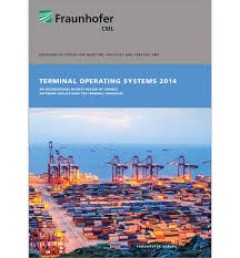
Terminal operating systems 2014 : an international market review of current s…
The worldwide market of terminal operating systems is very heterogeneous. It is characterized by many providers each of them offering more than one different product. The range of functions of each product is quite diverse depending on the scope of the product. This market survey is supposed to bring transparency into this market. Therefore public information as well as information derived from…
- Edisi
- -
- ISBN/ISSN
- 978-3-8396-0730-5
- Deskripsi Fisik
- 63 p., 33 cm
- Judul Seri
- -
- No. Panggil
- TXT PO JAH t
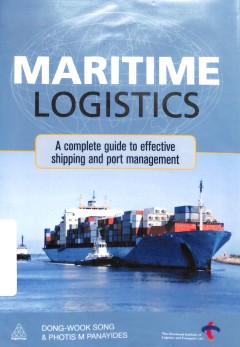
Maritime logistic : a complete guide to effective shipping and port management
Current globalization and borderless operations in manufacturing are creating a greater demand for international transportation and supply chain logistics. Maritime (shipping and ports) is one of the key components in this business pattern. It is now estimated that approximately 90% of global trading freight moves by ship. As this trade increases it is becoming more important to have a clear un…
- Edisi
- -
- ISBN/ISSN
- 978-0-7494-63694
- Deskripsi Fisik
- xiv, 326 p., 24 cm ; index
- Judul Seri
- -
- No. Panggil
- LC 388.04 SON m

The integrated logistics management system: a framework and case study
The purpose of this article is to formulate an integrated framework for distribution firms to establish and so improve their distribution systems. Since information technology is an important prerequisite to good logistics management, integration of information technology with the logistics management concept is presented. In the presentation, relevant Taiwanese practices are covered. Because f…
- Edisi
- Vol. 25 No. 6, 1995
- ISBN/ISSN
- -
- Deskripsi Fisik
- 22 p.
- Judul Seri
- International Journal of Physical Distribution & Logistics Management
- No. Panggil
- ATC LO NEN t

City Logistics Mapping The Future
This book contains information obtained from authentic and highly regarded sources. Reasonable efforts have been made to publish reliable data and information, but the author and publisher cannot assume responsibility for the validity of all materials or the consequences of their use. The authors and publishers have attempted to trace the copyright holders of all material reproduced in this pub…
- Edisi
- 20140923
- ISBN/ISSN
- 13: 978-1-4822-0892-
- Deskripsi Fisik
- 228P
- Judul Seri
- City Logistics
- No. Panggil
- ATC LO TAN c

Household waste collection as a reverse channel: A theoretical perspective
Of great concern today is how to collect and recycle post‐consumer waste efficiently. Reports the results of a study of 47 collection schemes for household waste which examined their logistical characteristics. An extensive literature review revealed that much recycling research suffers from a lack of theory. Discusses why and how logistics theory can contribute to the understanding of what i…
- Edisi
- Vol. 25 No. 2, 1995, pp. 39-55.
- ISBN/ISSN
- -
- Deskripsi Fisik
- 20 p.
- Judul Seri
- International Journal of Physical Distribution & Logistics
- No. Panggil
- ATC LO JAH h

Prioritisation of performance indicators in air cargo demand management
Purpose – Real operational data are used to optimise the performance measurement of air cargo capacity demand management at Virgin Atlanticb Cargo by identifying the best KPIs from the range of outcome-based KPIs in current use. Design/methodology/approach – Intelligent fuzzy multi-criteria methods are used to generate a ranking order of key outcome-based performance indicators. More spec…
- Edisi
- -
- ISBN/ISSN
- 1359-8546
- Deskripsi Fisik
- -
- Judul Seri
- -
- No. Panggil
- ATC LO MAY p

Building humanitarian supply chain relationships: lessons from leading practi…
The purpose of this paper is to advance thought and practice on supply chain relationship building, in the context of humanitarian logistics, drawing on lessons from leading practitioners.
- Edisi
- Vol. 1 No. 1, 2011 pp. 32-49
- ISBN/ISSN
- -
- Deskripsi Fisik
- 21 p .
- Judul Seri
- Journal of Humanitarian Logistics and Supply Chain Management
- No. Panggil
- ATC LO LAC b

A comparative analysis of free trade zone policies in Taiwan and Korea based …
The goal of this paper is to discuss the functions of a port hinterland, perform comparative analysis of existing port-type FTZ regulations and systems in Taiwan and Korea based on a port hinterland perspective, and provide recommendations concerning relevant policies and measures to government. This paper’s findings can be summarized as follows: (1) Existing container terminals in Taiwan co…
- Edisi
- Volume 25 Number 2 December 2009
- ISBN/ISSN
- -
- Deskripsi Fisik
- 31 p.
- Judul Seri
- -
- No. Panggil
- ATC PO CHIN a
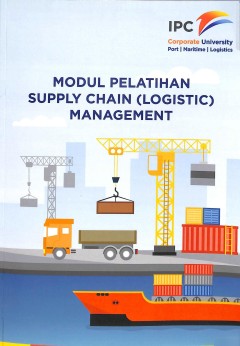
Modul Pelatihan : Supply Chain (Logistic) Management
This module is an introductory to Supply Chain Management, anad part of module of FIATA Higher Diploma in Supply Chain Management
- Edisi
- -
- ISBN/ISSN
- -
- Deskripsi Fisik
- 92 p., 29.5 cm.
- Judul Seri
- -
- No. Panggil
- IPC GUI SUP s

Green Maritime Logistics and Sustainability
The environmental consequences of international trade and transport have gained importance as a result of the current climate debate. Products are increasingly being produced in one part of the world, transported to another country and then redistributed to their final country of consumption. Since more than 80% of world trade tonnage measured in metric tons is carried by seagoing vessels, mar…
- Edisi
- 2012
- ISBN/ISSN
- 978-1-78052-340-8
- Deskripsi Fisik
- 20
- Judul Seri
- Maritime Logistics
- No. Panggil
- TXT LO LIN s

Theoritical aspects of logistics training
Authors discuss about main training needs and problems in the logistics as main driving motive for learning and training process organization in the universities and at the non-formal training places – work places, courses and training organizations. All driving motives can be named as internal and external forces which influence persons. In many cases external driving motives are related to …
- Edisi
- 2007, Vol XXII, No 1, 14–18
- ISBN/ISSN
- 1648-3480
- Deskripsi Fisik
- 6 p .
- Judul Seri
- Transport
- No. Panggil
- ATC LO PAL t

Third Party Logistics Choice
Logistics managers were surveyed regarding decisions (1) to use third party logistics services and (2) practices regarding the selection of third party providers. Responses suggest that decisions to use third party logistics services are not driven by strong preconceptions, pro or con, regarding the attractiveness of the third party option. Further, attitudes toward the use of third party logis…
- Edisi
- Vol. 6 Iss 2 pp. 93 - 102
- ISBN/ISSN
- -
- Deskripsi Fisik
- 13 p.
- Judul Seri
- The International Journal of Logistics Management
- No. Panggil
- ATC LO MCG t

Third party logistics services- a Singapore perspective
Focusses on three constructs that we believe are the primary determinants of the future usage of third party logistics services. These constructs are: extent of use of the third party logistics services; decision making process for choosing contract logistics services provider; and impact of the usage of contract logistics services on the organisation. An empirical research was carried out in…
- Edisi
- Vol. 29 No. 9, 1999, pp. 569-587
- ISBN/ISSN
- 0960-0035
- Deskripsi Fisik
- 25 p.
- Judul Seri
- Third party logistics services
- No. Panggil
- ATC LO BHA t

Third party logistics services usage by large Australian firms
Outsourcing of logistics functions is a business dynamic of growing importance in Australia (for example, see [1]) and elsewhere in the world (see, for example [2,3]. Third party logistics involves the use of external companies to perform logistics functions which have traditionally been performed within an organization. The functions performed by the third party can encompass the entire logist…
- Edisi
- Vol. 26 No. 10, 1996, pp. 36-45.
- ISBN/ISSN
- 0960-0035
- Deskripsi Fisik
- 13 p.
- Judul Seri
- International Journal of Physical Distribution & Logistics Management
- No. Panggil
- ATC LO DAP t

Third‐party logistics in Europe – five years later
Discusses the results of a survey among shippers in several European countries involved in outsourcing their transport, warehousing and other logistics activities. The survey, which is a joint initiative of the universities of Cranfield, Eindhoven, LinkoÈ ping and Rotterdam (Erasmus) and of ManDat GmbH, is a sequel to a similar survey carried out five years ago and has led to a renewed insigh…
- Edisi
- Vol. 30 No. 5, 2000, pp. 425-442.
- ISBN/ISSN
- 0960-0035
- Deskripsi Fisik
- 24 p
- Judul Seri
- Third-party logistics in Europe
- No. Panggil
- ATC LO LAA t

Third-Party Logistics- Is There a Future
In this article, the authors describe the results of a study on strategies of third‐party logistics (TPL) providers. The size of the TPL industry and the different requirements placed on logistics as opposed to basic services, such as transportation or public warehousing, justify the need to treat TPL as a separate industry. The authors describe three waves of entrants into the TPL industry a…
- Edisi
- Vol. 10 Iss 1 pp. 59 - 70
- ISBN/ISSN
- -
- Deskripsi Fisik
- 17 p.
- Judul Seri
- The International Journal of Logistics Management
- No. Panggil
- ATC LO BER t C.1
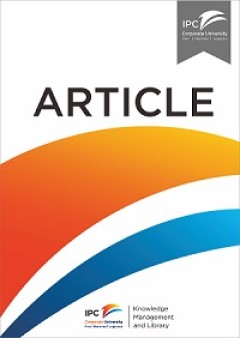
Time compression in the supply chain
Claims that time compression is a powerful source of competitive advantage that remains relatively underutilized in UK busineses. Details the research undertaken by the Warwick Manufacturing Group’s time compression programme (TCP) on the applications of time‐based approaches with a number of partner companies. Explores the nature of time compression in relation to the fundamental principle…
- Edisi
- Vol. 96 Issue: 2, pp.12-16
- ISBN/ISSN
- -
- Deskripsi Fisik
- 7 p.
- Judul Seri
- Industrial Management & Data Systems
- No. Panggil
- ATC LO BEE t

Time compression in the supply chain : information management is the vital …
Claims that time compression is a powerful source of competitive advantage that remains relatively underutilized in UK busineses. Details the research undertaken by the Warwick Manufacturing Group’s time compression programme (TCP) on the applications of time‐based approaches with a number of partner companies. Explores the nature of time compression in relation to the fundamental principle…
- Edisi
- Vol. 96 Issue: 2, pp.12-16
- ISBN/ISSN
- 0263-5577
- Deskripsi Fisik
- 7 p.
- Judul Seri
- Time compression in the supply chain
- No. Panggil
- ATC LO BEE t C.1

Transportation concerns of foreign firms in China
In recent years, many foreign firms have flocked to China (People’s Republic of China) to take advantage of the opportunities in the large market. However, some of these firms have faced logistical problems in transporting and distributing their goods in China. Identifies the transportation problems faced by foreign firms operating in China and examines the possible actions and factors for mi…
- Edisi
- Vol. 30 Iss 1 pp. 35 - 54
- ISBN/ISSN
- 0960-0035
- Deskripsi Fisik
- 23 p.
- Judul Seri
- International Journal of Physical Distribution & Logistics Management
- No. Panggil
- ATC LO PHU t C.1

Twenty years of IJLM: evolution in research
The purpose of this paper is to evaluate research trends observed in the International Journal of Logistics Management (IJLM) during its first 20 years of publication. Design/methodology/approach – A content analysis was conducted of the IJLM’s first 20 years of publication (330 articles in total) to identify changing trends in subject matter, use of theory, type of research methodology, an…
- Edisi
- Vol. 23 No. 1, 2012 pp. 4-30
- ISBN/ISSN
- 0957-4093
- Deskripsi Fisik
- 29 p.
- Judul Seri
- The International Journal of Logistics Management
- No. Panggil
- ATC LO TRO t C.1

Views Of Logistics Service Providers On Modularity In Logistics Services
The objective of this paper is to increase understanding of the concept of service modularity and to present examples of applications of modularity approach in logistics services. This aim is pursued with an empirical case study, consisting of interviews of 25 logistics service providers (LSPs). Themes found in the literature are used in the interviews and in the analysis of the interviews. The…
- Edisi
- Vol. 16, No. 1, 34–50,
- ISBN/ISSN
- 1469-848X
- Deskripsi Fisik
- 18 p.
- Judul Seri
- International Journal of Logistics Research and Applications
- No. Panggil
- ATC LO RAJ v C.1

Virtual logistics- transport in the marketspace
While transport seems to be increasingly constrained in its mission to supply services which are continuous, costless and available in all directions, the telecommunications system seems to have no such constraints and to be developing ever more rapidly in terms of inter‐connectivity, falling costs and multi‐directionality. It would seem to be impossible to contemplate the future demand for…
- Edisi
- Vol. 28 No. 7, 1998, pp. 547-574,
- ISBN/ISSN
- 0960-0035
- Deskripsi Fisik
- 30 p.
- Judul Seri
- International Journal of Physical Distribution & Logistics Management
- No. Panggil
- ATC LO CRO v C.1

Computers in retailing
Major changes have taken place in the application of information technology in retailing. Looks at the opportunities for improving use of data within the retail environment through modern technology in the early 1980s
- Edisi
- Vol. 29 No. 7/8, 1999, pp. 465-476.
- ISBN/ISSN
- 0960-0035
- Deskripsi Fisik
- 14 p .
- Judul Seri
- International Journal of Physical Distribution & Logistics Management
- No. Panggil
- ATC LO WAL c C.1

Are shippers satisfied with the diversified provision of logistics service by…
This paper explores the current feature of the service provision in the shipping industry and contributes to a more thorough understanding of the industry. A questionnaire was developed to examine the performance of service providers assessed by international shippers in the UK and South Korea. We find that British shippers are more likely to be satisfied with the diversified service provision …
- Edisi
- Volume 25 Number 2 December 2009 pp.237-251
- ISBN/ISSN
- -
- Deskripsi Fisik
- 15 p.
- Judul Seri
- Asian journal of shipping & logistics
- No. Panggil
- ATC LO JUN a

Are supply (driven) chains forgotten?
This paper explores the current feature of the service provision in the shipping industry and contributes to a more thorough understanding of the industry. A questionnaire was developed to examine the performance of service providers assessed by international shippers in the UK and South Korea. We find that British shippers are more likely to be satisfied with the diversified service provision …
- Edisi
- Volume 25 Number 2 December 2009 pp.237-251
- ISBN/ISSN
- -
- Deskripsi Fisik
- 15 p.
- Judul Seri
- The Assian Journal Shipping and Logistics
- No. Panggil
- ATC LO KOO a C.1

Analysing Materials Handling Needs in Concurrent/Simultaneous Engineering
In simultaneous/concurrent engineering (SE/CE), many functions are performed concurrently; however, manufacturing logistics design is seldom considered. Presents an integrated methodology for the design of manufacturing logistics and links it with early phases of product design. The concept of “adaptability factor” is proposed, linking choice of manufacturing technology to handling operatio…
- Edisi
- Management, Vol. 14 No. 9, 1994, pp. 68-82.
- ISBN/ISSN
- 0144-3577
- Deskripsi Fisik
- 17 p.
- Judul Seri
- International Journal of Operations & Production Management
- No. Panggil
- ATC LO GUP a C.1

A Review and Evaluation of Logistics Performance Measurement Systems
Logistics encompasses a complex set of activities which require a collection of metrics to adequately measure performance. Ideally, the performance metrics used should be selected and maintained as a system, so they complement and support each other and provide the decision makers with a well balanced picture of the logistics process. Often in practice, however, performance measurement systems …
- Edisi
- Vol. 6 Iss 1 pp. 61 - 74
- ISBN/ISSN
- -
- Deskripsi Fisik
- 18 p.
- Judul Seri
- The International Journal of Logistics Management
- No. Panggil
- ATC LO CAP a C.1

Seaport resilience to climate change: mapping vulnerability to sea-level rise
This paper examines the likely impact of extreme weather events and rising sea levels on key port logistics operations and infrastructure. It develops a 3D model to assess the vulnerability of seaports vis-a`-vis operational assets to sea-level rise. Key operational assets were first identified and geo-referenced on a high-resolution digital terrain model. In addition, perceptions of threat of …
- Edisi
- Vol. 60, No. 1, 65–78
- ISBN/ISSN
- -
- Deskripsi Fisik
- 15 p.
- Judul Seri
- Journal of Spatial Science,
- No. Panggil
- ATC MG CHH s C.1

Transport integration tools for supply chain management
Over the last 3 years, research carried out by Cardiff University has studied the opportunities to integrate freight transport better into supply chains. The paper stems from this work. After asserting the principal reasons why better transport integration is important, it charts a range of diagnostic tools that were deployed. The tools represent a menu of instruments that aim to aid understand…
- Edisi
- Vol. 9, No. 1, March 2006, 57–74
- ISBN/ISSN
- 1746-8809
- Deskripsi Fisik
- 19 p.
- Judul Seri
- International Journal of Logistics Research and Applications
- No. Panggil
- ATC MG STE t C.1
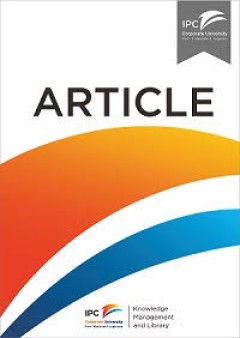
Port-centric logistics, dry ports and offshore logistic hubs- strategies to o…
- Edisi
- Vol 39 Issue: 2, pp. 207-226
- ISBN/ISSN
- 0308–8839
- Deskripsi Fisik
- -
- Judul Seri
- Maritime Policy & Management: The flagship journal of international shipping and port research
- No. Panggil
- ATC PO MON p
- Edisi
- Vol 39 Issue: 2, pp. 207-226
- ISBN/ISSN
- 0308–8839
- Deskripsi Fisik
- -
- Judul Seri
- Maritime Policy & Management: The flagship journal of international shipping and port research
- No. Panggil
- ATC PO MON p

New Models for Sustainable Logistics Internalization of External Costs in Inv…
Logistics of transport systems is a key driver for the growth of whatever economy. Freight transport allows production systems or common citizens to receive or send materials or finished goods required by processes as well as by everyday life However, the overall transport sector accounts worldwide for more than half of global liquid fossil fuels consumptions which, in turn, is responsible for …
- Edisi
- 2015
- ISBN/ISSN
- 978-3-319-19710-4
- Deskripsi Fisik
- 111P
- Judul Seri
- New Models for Sustainable Logistics
- No. Panggil
- ATC MG DIG n
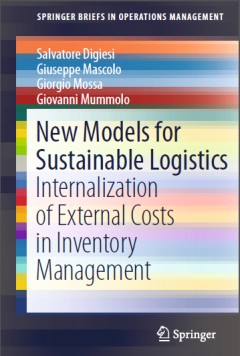
New models for sustainable logistics: internalization of external costs in in…
- Edisi
- -
- ISBN/ISSN
- 978-3-319-19710-4
- Deskripsi Fisik
- -
- Judul Seri
- -
- No. Panggil
- TXT LO DIG n
- Edisi
- -
- ISBN/ISSN
- 978-3-319-19710-4
- Deskripsi Fisik
- -
- Judul Seri
- -
- No. Panggil
- TXT LO DIG n
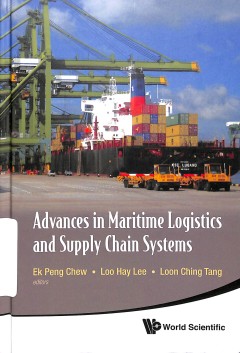
Advances in Maritime Logistik and Supply Chain Systems
This timely book discusses the recent developments in maritime logistics, an important specialized area for the global economy. It includes issues such as the recent economic crisis, port competition and development, and provides insights and trends relating to these issues. Consisting of renowned researchers worldwide, the primary objective of the book identifies some of the new problems and c…
- Edisi
- -
- ISBN/ISSN
- 13-978-981-4329-85-9
- Deskripsi Fisik
- xvi, 315 p. ; 26 cm.
- Judul Seri
- -
- No. Panggil
- TXT LO SON m
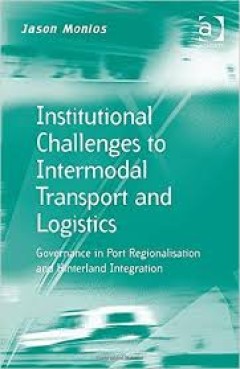
Institutional challenges to intermodal transport and logistics : governance i…
While the operational realities of intermodal transport are relatively well known, the institutional challenges are less well understood. This book provides an overview of intermodal transport and logistics including the policy background, emerging industry trends and academic approaches. Establishing the three key features of intermodal transport geography as intermodal terminals, inland logis…
- Edisi
- -
- ISBN/ISSN
- 978-1-4724-2321-4
- Deskripsi Fisik
- xx, 219 p., 23 cm
- Judul Seri
- -
- No. Panggil
- TXT LO MON i
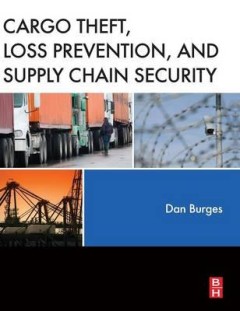
Cargo Theft, Loss Prevention, And Supply Chain Security
Part history of cargo theft, part analysis and part how-to guide, this book is the one source you need to in order to understand every facet of cargo theft and take steps to prevent losses. It supplies a massive amount of cargo theft statistics and provides solutions and best practices to supply chain security. Providing you with cutting-edge techniques so you can prevent losses, this book will…
- Edisi
- -
- ISBN/ISSN
- 978-0-12-416007-1
- Deskripsi Fisik
- xx, 366p. ; 25cm.
- Judul Seri
- -
- No. Panggil
- TXT LO BUR c C.1
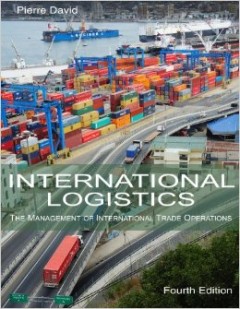
International Logistics: The Management of International Trade Operations
A full-color textbook covering all of the concepts of international logistics. This textbook is written from the perspective of the users, those managers who are actively exporting or importing goods or are otherwise involved in international trade operations. All of the relevant issues are thoroughly explained, including documentation, terms of payment, terms of trade (2010 Incoterms rules), e…
- Edisi
- 4th ed.
- ISBN/ISSN
- 978-0-9894906-0-3
- Deskripsi Fisik
- xxvi, 695p. ; 28cm.
- Judul Seri
- -
- No. Panggil
- TXT LO DAV i

An automated system for motor carrier selection
- Edisi
- Vol. 103 Iss 7 pp. 533 - 539
- ISBN/ISSN
- 0263-5577
- Deskripsi Fisik
- 9 p.
- Judul Seri
- Industrial Management & Data Systems
- No. Panggil
- ATC LO KUO a
- Edisi
- Vol. 103 Iss 7 pp. 533 - 539
- ISBN/ISSN
- 0263-5577
- Deskripsi Fisik
- 9 p.
- Judul Seri
- Industrial Management & Data Systems
- No. Panggil
- ATC LO KUO a

Locating dry ports on a network : a case study on Tianjin port
A mathematical model for optimizing the location of dry ports is developed. The objective is to minimize the sum of the transportation costs and the fixed facility opening/closing costs. Unlike previous research on this subject, the possibility of closing existing dry ports is investigated. The dry port location problem is formulated as an integer programming and it is shown that the CFLP is a …
- Edisi
- -
- ISBN/ISSN
- 0308-8839
- Deskripsi Fisik
- 19 p.
- Judul Seri
- -
- No. Panggil
- ATC PO HUA l
 Karya Umum
Karya Umum  Filsafat
Filsafat  Agama
Agama  Ilmu-ilmu Sosial
Ilmu-ilmu Sosial  Bahasa
Bahasa  Ilmu-ilmu Murni
Ilmu-ilmu Murni  Ilmu-ilmu Terapan
Ilmu-ilmu Terapan  Kesenian, Hiburan, dan Olahraga
Kesenian, Hiburan, dan Olahraga  Kesusastraan
Kesusastraan  Geografi dan Sejarah
Geografi dan Sejarah